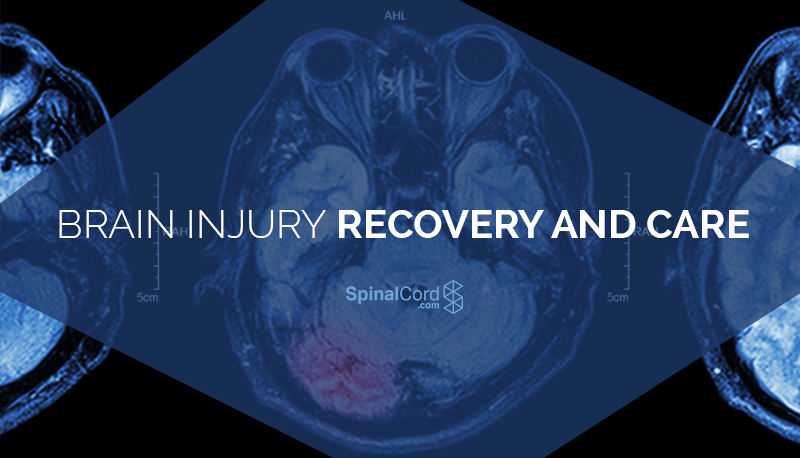Brain Injury Recovery and Care

Given that it is the most complex organ in the body and the epicenter of the central nervous system, any direct injury to the brain can have serious long-term effects. Truly, a traumatic brain injury -- that is, one that “occurs when an external mechanical force causes brain dysfunction” -- is among the most serious, dire injury that an individual can experience.
The resulting damage can not only be catastrophic but have a devastating effect on both the patient and his or her loved ones. That being said, there are still some basic elements of brain injury care that can maximize the chances of recovery. Let’s take an in-depth look at some of them.
Types of Brain Injuries
As we mentioned, any type of brain injury is capable of causing significant damage, but that doesn’t mean that all traumatic brain injuries are equal. In fact, the results and description of each brain injury is so variable that categorization seems a moot point. Nevertheless, here are a few of the many kinds of brain injury that one can suffer:
- Concussion: Not to be confused with the similarly sounding contusions, concussions -- a broad term used to describe an injury with repercussions that reach further than their more localized counterparts -- is unfortunately the most common type of traumatic brain injury.
- Contusion: Unlike concussions, contusions are smaller in scale and describe any bleeding that may accompany a blow to the head.
- Penetration: Most often, bullets are the cause of penetration into the skull, but the term “penetration injury” can pertain to any object that fulfills the same effect.
- Diffuse axonal injury: Any injury that results in the tearing of brain tissue is described as a diffuse axonal injury, whether it results from a vehicular accident or some other kind of trauma.
The Recovery Process
There’s no telling how long the recovery process may be from a traumatic brain injury, as it changes with each specific case. Yet, whether your recovery plan covers months or years, it’s imperative that the focus remains on resting, taking it slow, and sticking to your designated treatment plan. You might also wish to consider incorporating a rehabilitation facility into your new routine, since some additional specialization may be needed to effectively address your symptoms and keep your recovery on track.
Depending on the severity of the condition, recovery may also involve neurologists, neuropsychologists and even speech therapists. Through it all, a strict adherence to the doctor’s orders -- including prescribed medication and limited physical activity -- is paramount to increase the patient’s chances for recovery. This will, of course, require remarkable patience on the part of both the individual suffering from the brain injury and the caregivers. But, even if treatment shifts over time, remain focused on the big picture and the increased likelihood that the road ahead may involve at least some measure of recovery.
Caring and the Aftermath
Although caregiving is often described as providing physical care to the patient in question, there’s another, equally important side to it all. A traumatic brain injury can forever change the dynamic of a household, challenging a family in ways it never had been before. Chances are high that the patient will experience emotional instability in the aftermath of such an injury. Anger, despair and anxiety are all common emotional after-effects of an injury to the brain, and it’s especially important to acknowledge their existence if the designated caregiver for a patient will be a close friend or family member.
In such a scenario, it’s perfectly acceptable to need the assistance of support services -- whether in-home or simply through some form of counseling -- to help ease both the patient and his or her caregiver through the transition, regardless of the prognosis. Don’t let emotions get the best of any of you in this situation. Simply remain as calm and persistent as possible. Even when it seems that all hope is lost, remember that there is always somewhere to turn, someone who can provide guidance.
Dare to Care
No one should have to face the terrible aftermath of a brain injury. However, we hope that the above information can at least help provide some knowledge and hope for those of you already facing such circumstances. Regardless of how dire your case may be, there’s always the potential for improvement. Science and technology have been progressing in leaps and bounds these days, and the best thing you can do for your long-term health is to remain vigilant regarding both your recovery options and any legal recourse that might aid you along your path toward a better tomorrow.
Stay Updated on Advancements On Traumatic Brain &
Spinal Cord Injuries
About the Author





